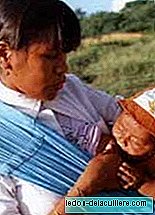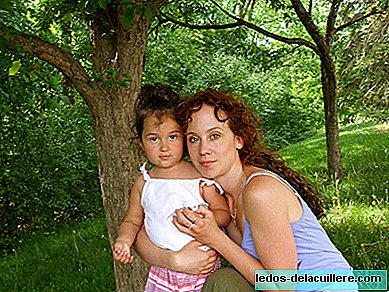
There are still many countries in the world where women do not go to a hospital to give birth.
And I do not talk about home births with all the guarantees and supervised by midwives that are increasingly given in developed countries, but about home births of indigenous women from Latin America They have their babies at best with the assistance of a family member without any medical experience.
In Bolivia, for example, the percentage of women (53%) who die at the time of giving birth at home due to complications during childbirth is very high.
The same happens in other Latin American countries such as Haiti, Guatemala or Peru where indigenous traditions are also very influential.
They have their babies without any means, they don't have an aseptic environment or the right instruments. In most cases, they did not have any type of control during pregnancy, with some high-risk deliveries destined for certain death.
Their deep-rooted traditions make them trust religious designs more than those of medicine, putting their own lives and those of their baby at risk.
According to the customs of the country people, childbirth is one of the moments in life when the woman shows her husband how strong she is. Strength is a sign of being a good woman in the eyes of the rest of the family.
The Bolivian newspaper "La Razón" points out that no less than seven out of ten women could save their lives if they had qualified care at the time of delivery and immediately after.
It is a complicated situation, because you cannot take away your convictions from one day to the next, but I do believe that the balance could be found between respecting their traditions and providing health care more in keeping with the times.











